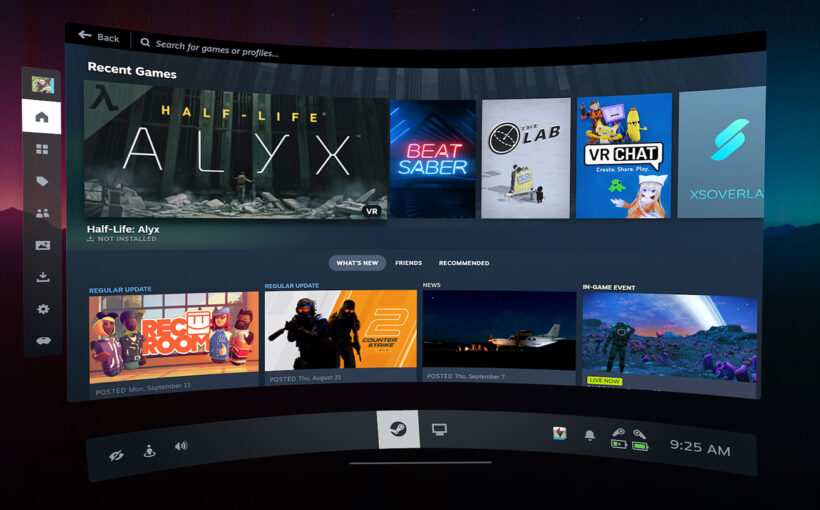
If you care about Valve’s mystery announcements, you’re probably hanging on every word, so I’m not going to leave any of them out. Here’s the whole email, as bolded by Valve:
Greetings! Today we are shipping SteamVR 2.0 in beta. We see this is as the first major step toward our goal of bringing all of what’s new on the Steam platform into VR.
Users who opt into this beta will notice a new UI with lots of added features:
·Most of the current features of Steam and Steam Deck are now part of SteamVR
·Updated keyboard with support for new languages, emojis, and themes
·Integration of Steam Chat and Voice Chat
· Improved Store that puts new and popular VR releases front and center
This is just the beginning of SteamVR 2.0’s journey, and we’ll have more to share in the coming weeks and months as we collect feedback and work on the features mentioned above. This beta will give us a chance to iron out the kinks as more and more people try it out. As with all betas, this means SteamVR 2.0 will get better and better as we prepare it for its eventual full public launch.
To try out the new UI, opt in to both SteamVR Beta and the Steam Client Beta.
Instructions for Steam Client Beta:
https://help.steampowered.com/en/faqs/view/276C-85A0-C531-AFA3
Instructions for SteamVR Beta:
https://help.steampowered.com/en/faqs/view/4F5E-AD22-7402-2EAD
Thanks!
-The SteamVR Team
:format(webp)/cdn.vox-cdn.com/uploads/chorus_asset/file/24953235/steamvr_20_2.jpg)
Valve originally said it was “looking ahead” to SteamVR 2.0 back in 2019, suggesting it would be a 2020 project.
Valve founder and president Gabe Newell said way back in 2017 that the company was working on three “full games” for VR, and released the first, Half-Life: Alyx, in March 2020, nine months after Valve shipped its first bespoke headset, the Valve Index. Both were widely praised, but neither has seen a followup yet.
Valve has reportedly been working on a standalone VR headset codenamed Deckard, though other possible product names have also appeared in the company’s code. Some sort of Valve device has been spotted passing through South Korea’s National Radio Research Agency, which could suggest a release in the near future.



